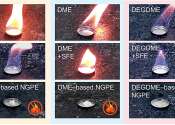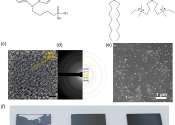Metal organic frameworks could turn greenhouse gas into 'gold'
Fluorine can be a beneficial ingredient in medicines because of its excellent pharmacological properties, according to Phillip Milner, assistant professor of chemistry and chemical biology in the College of Arts and Sciences ...
Oct 11, 2023
0
1









